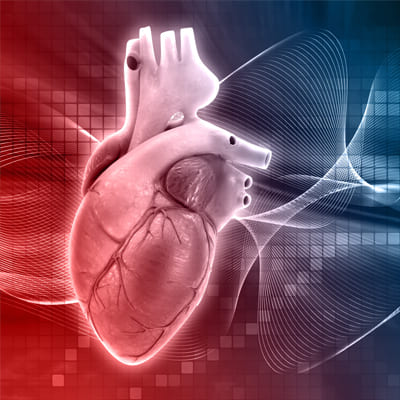05 June 2022
A heart attack, medically termed a myocardial infarction, is a widespread cardiac issue that arises in adult men and women of all age groups and requires prompt emergency care. It happens due to a blood clot in the vessels leading to the heart, which in turn obstructs blood flow to the cardiac chambers. Since blood circulation is essential for oxygen supply to the heart, the lack of smooth fluid movement invariably damages the cardiac tissues and results in their complete decline.
Undeniably, a heart attack is a cause for concern and can at times even lead to fatal outcomes if not treated in time or if there are multiple blocks in the vessels traversing across the heart. However, specific attributes indicate an increased likelihood of encountering a heart attack. Staying alert of the same aids in a full recovery and helps prevent recurring instances of myocardial infarction, as well as grave complications of heart failure and stroke.

Watch Out For These 5 Risk Factors Of Heart Attack:
Age
With increasing age, every organ in the body undergoes a gradual decline in function, and so does the heart, with the prominent weakening of cardiac muscles. In present times, men and women 40 years and older face a significant chance of developing a heart attack. In some cases, even younger individuals with poor lifestyle habits of an unhealthy junk diet, lack of routine physical activity, besides smoking tobacco and alcohol consumption, can develop a heart attack.
Diabetes
Diabetes is characterized by high blood sugar levels due to insufficient insulin or hampered insulin activity in glucose metabolism. Having sudden spikes in blood sugar or incessant elevated blood glucose concentrations considerably raises the prospect of a heart attack.
Elevated LDL Cholesterol/Triglycerides
While HDL (high-density lipoprotein) cholesterol is known as the "good cholesterol" as it assimilates cholesterol and carries it back to the liver for subsequent elimination from the body, LDL (low-density lipoprotein) cholesterol is called "bad cholesterol" as it accumulates in the blood vessels leading up to the heart, forming blocks and triggering heart attacks. Another type of lipid-triglycerides-also thicken artery walls with deposits of fat molecules, leading to narrowing of the tubular blood vessel structures and raising the risk of myocardial infarction.
Undue Stress
Mental stress owing to professional issues at work, interpersonal conflicts at home, or traumatic incidents can tremendously elevate the probability of a heart attack. This is because stress instigates high levels of inflammation in the body, which negatively influences cardiac operations in the system.
High Blood Pressure
High blood pressure, also known as hypertension, arises when blood pressure readings cross 140/90 mmHg. Normal blood pressure for adults lies in the range of 90/60-120/80 mmHg, but at times, owing to high salt intake, poor diet and lifestyle practices, or underlying ailments like diabetes, obesity, the force of blood flowing across the artery walls increases tremendously. High blood pressure implies the heart muscles are strained while pumping blood across the heart and body, thereby mounting the risk of heart attack, cardiovascular disease, and stroke.